

Today’s issues in the traditional healthcare system makes us look for new ways to take advantage of cutting-edge technology. We talked about these current trends with Ilona Bernotaitė, the Chief People Officer of Kilo Health.
So, how can we innovate healthcare?
Digital health is still in the early stages, and the no. 1 challenge in this industry is adoption. It’s not only about convincing consumers but also delivering proof the doctors can trust you and recommend those digital solutions as a part of a patient’s journey.
In the Digital Health Consumer survey made by Accenture in 2020, 81% of consumers said they prefer in-person, physical experience with a doctor or other medical professional. Just 19% prefer virtual or digital experiences with a doctor or other medical professional. It means that doctors still play a massive role in the healthcare system, which cannot be neglected in this undergoing change.
With the younger generation being more willing to use digital tools, adoption will become less of an issue. But if we sit and wait, this could take many years. Startups need to take a proactive step in helping patients and physicians adapt to a changing health system.
I’m not saying that physicians or nurses can be replaced; on the contrary!
However, sometimes it is sufficient to focus on preventative healthcare or use only digital therapeutics (DTx) and skip the physical visit to the hospital. The best part is that it all functions as an ecosystem, with digital therapeutics assisting physicians and improving patients’ lives.
And a few other improvements, such as regulatory changes and including digital therapeutics tools to employer benefits made digital health even more booming and attractive for investors. Digital health space received a record $24 billion of investments in 2020.
It is difficult to predict if digital health will continue to expand at the same rate as it did during the pandemic’s early years. However, it is clear that a considerable proportion of society has understood the value of digital health, and I don’t think we will ever go back to the pre-covid healthcare system.
Kilo Health recently hosted the biggest Global Health Tech Forward 2021 conference. In it, health tech startups, big consulting firms such as EY, Accenture, and Pharma experts from Novartis, Roche, AstraZeneca, GSK together discussed the future of health tech.
The speakers made it clear that digital health will bring a massive change to the world.
First, we see a shift in the digital health space from wellness management to health management. In 2015, just 28% of applications were for health condition management. By 2020, this figure had risen to 47%. Almost half of that 47% are mental health, diabetes, and cardiovascular disease-related apps, according to the IQOVIA report.
Consumers could embrace digital health solutions and use their money for the digital therapeutics products. This could prevent disease progression, instead of dealing with the issue once they are diagnosed and need the treatment.
Why is this trend exciting? Because we can impact so many people and move from medicine, which is treatment-oriented, to disease prevention.
We evolved from being able to order a kitchen towel on Amazon to being able to order online personalized pills and home blood test kits. It marks the rise of direct-to-consumer customized healthcare.
And even more, not just prevention and treatment is being touched by digital health, but also digital diagnostics. Sensors that detect health conditions can be integrated into wearable devices, smartphones, or other portable external devices.
I believe that these new digital health tools and services can co-exist with the traditional healthcare system. They can support doctors and enable patients to continue care and self-monitoring outside the doctor’s office.
We came up with a co-found initiative to attract entrepreneurs who want to build health tech startups fast using the advantages of the Kilo Health marketing and technology platform.
We have tons of new business ideas developed and tested by our R&D team. Once the initial business idea passes the R&D test phase, we seek to find outstanding talent to develop these ideas into successful products.
The co-founder becomes our business partner and is responsible for deciding on business strategy, developing and launching the product, and building their team. We offer a well-paid role, support, shared knowledge, and exciting challenges.
This way, a talented person has an opportunity to make increased revenue if the venture is successful. At the same time, the personal risks are much lower compared to building a startup and fundraising on your own.
Many people wanted to take on a new challenge in their careers and have already become co-founders. When we first announced this job opportunity on LinkedIn, we received 1,000+ applications in 3 weeks from all around the world. We are now wrapping up with a few finalists. We hope to have a few new co-founders in Vilnius, Berlin, Stockholm, and Amsterdam.
Some co-founders come to us with their business ideas which we are happy to explore together. Others apply without a business idea, which is fine because we have many ideas and are delighted to share them.
And this approach is the biggest co-found program advantage. There are so many talented people out there who do not have a great business idea or enough time or funds to test it – and that’s where we can help.

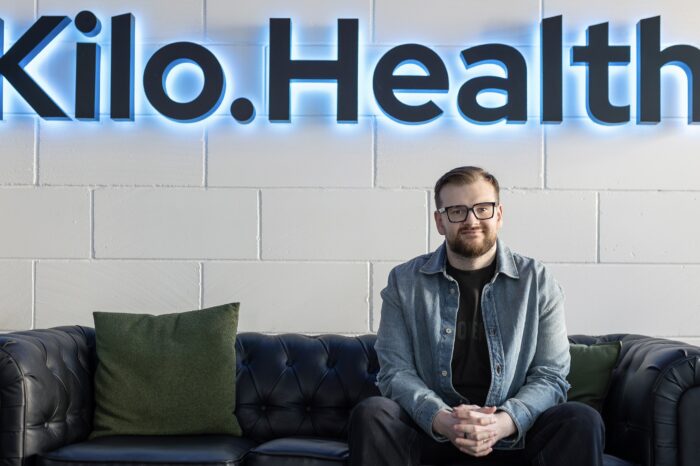
Kilo Health concluded 2024 on a strong note, achieving stable revenues and growth, alongside a team of 450 employees. In 2024, the company’s consolidated revenue remained steady at €234 million, the same as in 2023. Despite external market challenges, Kilo…

Ask, research, support. These three words sum up my role — or maybe just the nerd face emoji. Currently, I am working as a Scientific Research Lead at Kilo Health. But before that, I’ve always been on a similar path,…

As we’re entering an exciting new chapter of business growth and leadership, it’s the perfect time to catch up on the latest changes in our team and where we’re headed next. Dive in and get to know our new CEO…

I’m Matas, and when asked, I refer to myself as an intern — always learning. However, research, strategy, business development, and idea generation are the cornerstones of my work. I want to pull back the curtain and give you an…
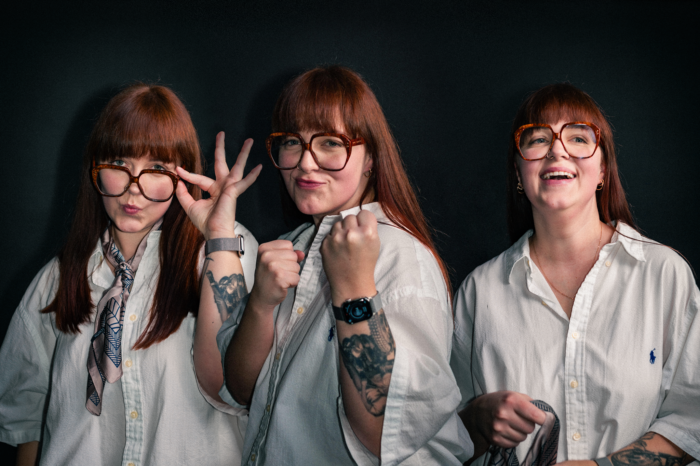
I’m Deimante, currently Head of Marketing at Kilo Health, and a big lover of this company. My journey to being hired at Kilo has been quite the ride. How it all started? I underwent interviews with 11 different people and…

Ever dreamt of taking the lead, even if the path isn’t crystal clear? Or to have someone believe in you and offer you a chance to figure out whether you would thrive in a startup environment? Speaking of which, Kilo…
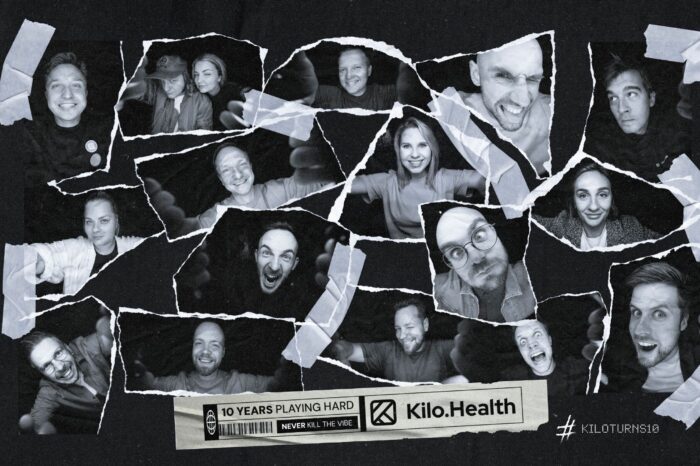
A whole decade has raced by in the blink of an eye for us at Kilo Health, and what better way to celebrate than to reflect on the milestones and lessons over the years? Do you know where we started?…
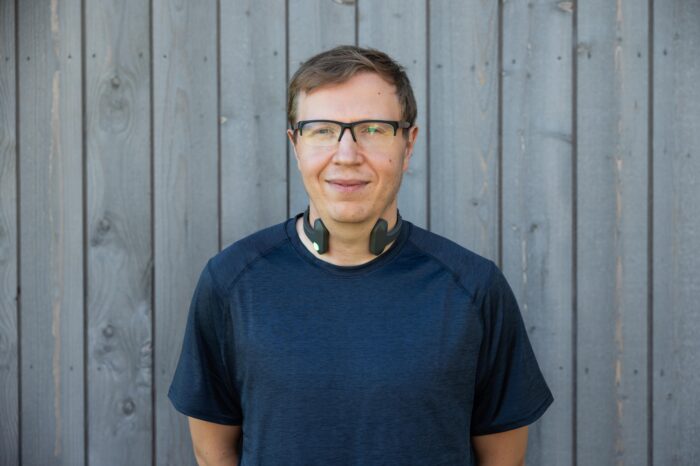
We, the co-founders, are just ordinary individuals with grand ambitions. There are times when we work twice as long and intensely as others, yet we’re equipped with the same amount of daytime, energy, and capacity. However, as leaders in the…

There’s no enchanting tale behind how I became a part of Kilo Health. In truth, some of us regular folks simply have regular journeys, and that’s perfectly fine. What counts is that today, I hold a successful product in my…

Reflecting on your achievements from the previous year is advantageous. That’s exactly what we did, proudly demonstrating our boundless aspirations through an impressive 84% growth and 213 million euros. So let’s put our hands in the air and celebrate together,…

I joined Kilo Health back in 2019, and I can prove that when people’s values and mindsets align, great things can be accomplished, even if you don’t have a plan. BoomeranGO!, the first and only product for children provided by…
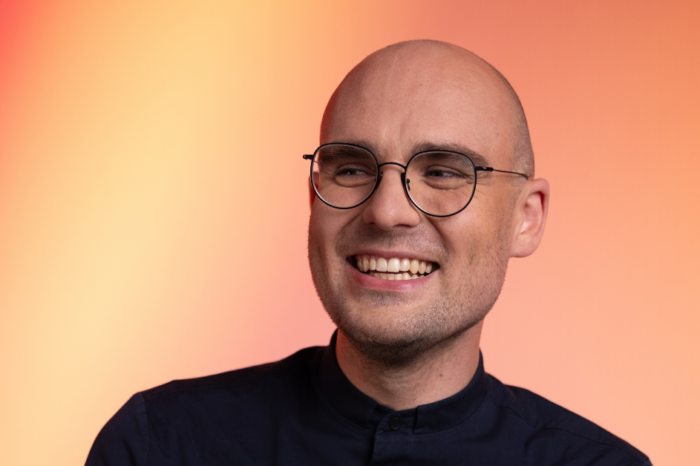
Lighting, sound, set, and actors are essential components of a film studio, but they are not the sole factors that define its success. Consistent creativity, appreciation of talent, and adaptability to market trends are a few of the things that…
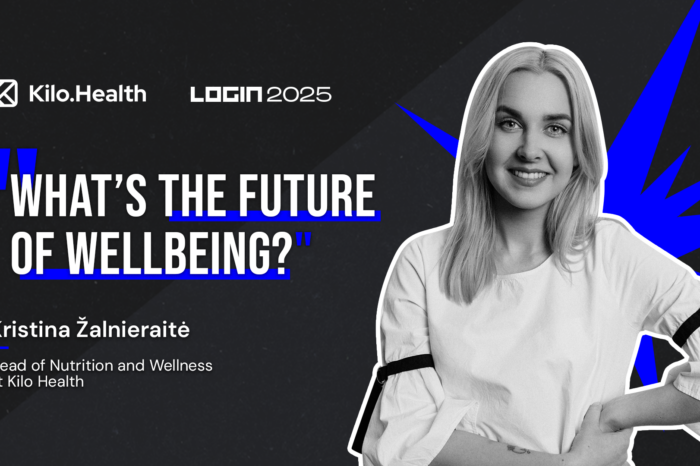
Imagine a world where technology creates a tailor-made meal plan and recommendations after analyzing different data about you. This is not science fiction but a reality that is fast approaching. Traditional plans drawn up by nutritionists are already being replaced…

Hey, I’m glad you’re here — I’m Viktorija Jokantaite-Kutke, the CEO of the Weight Management Accelerator at Kilo Health. One thing about me is that I don’t do boredom. I am always moving, always building. Try to keep up! When…